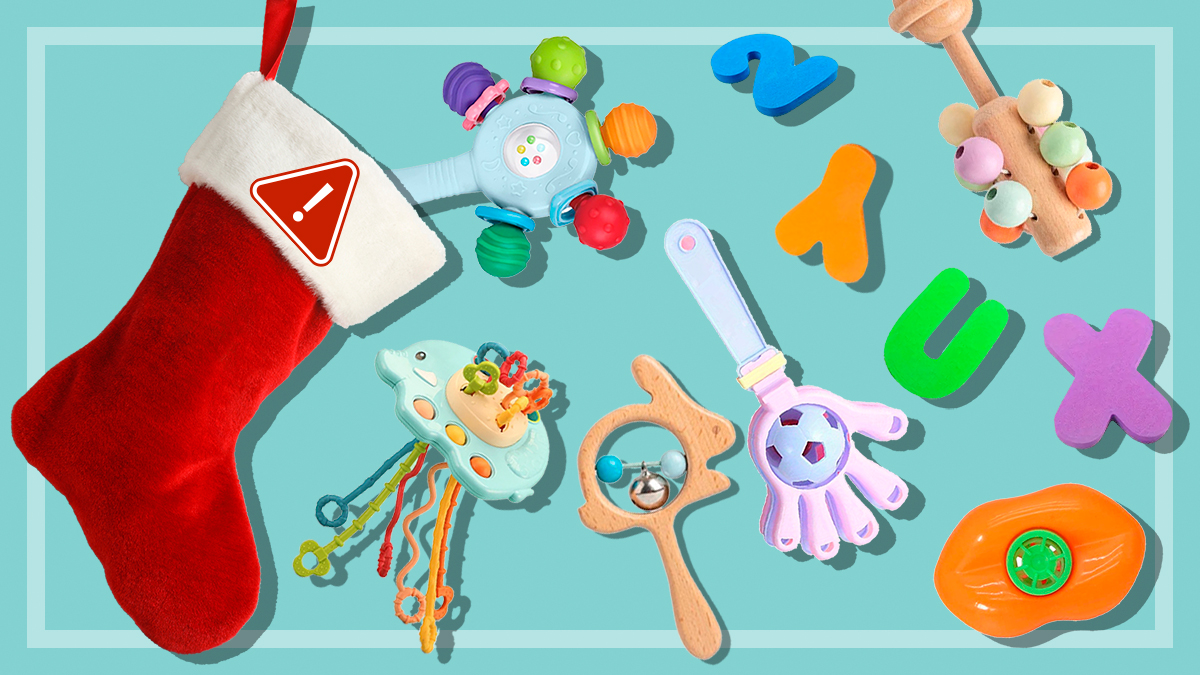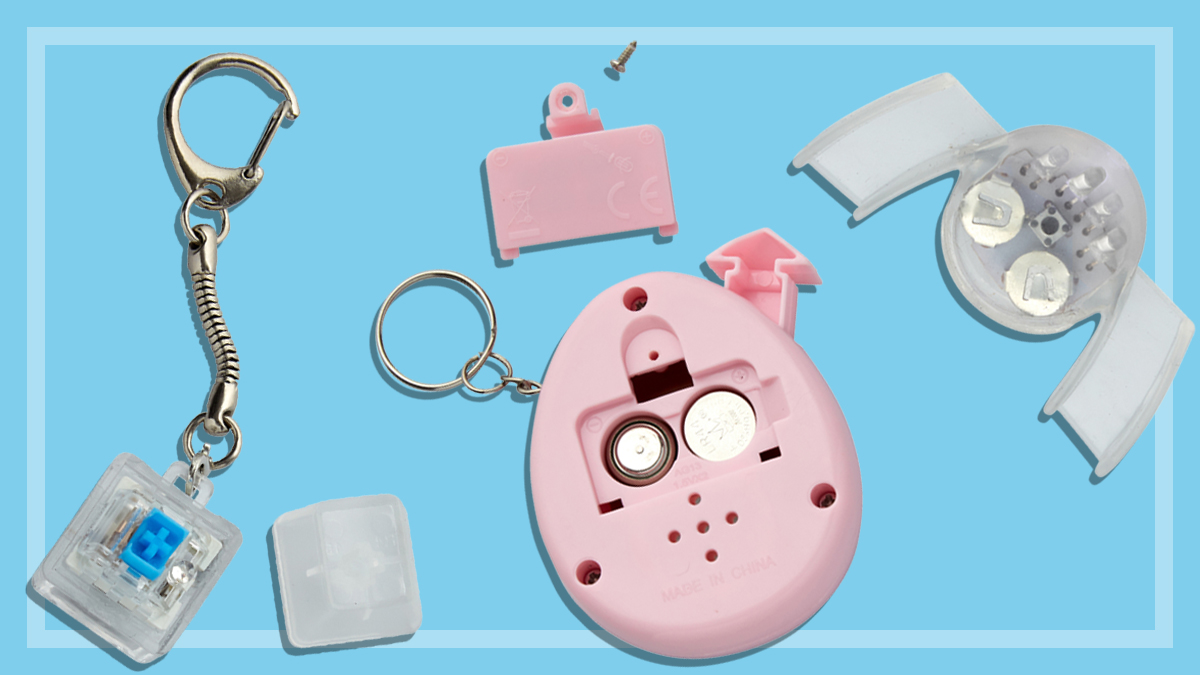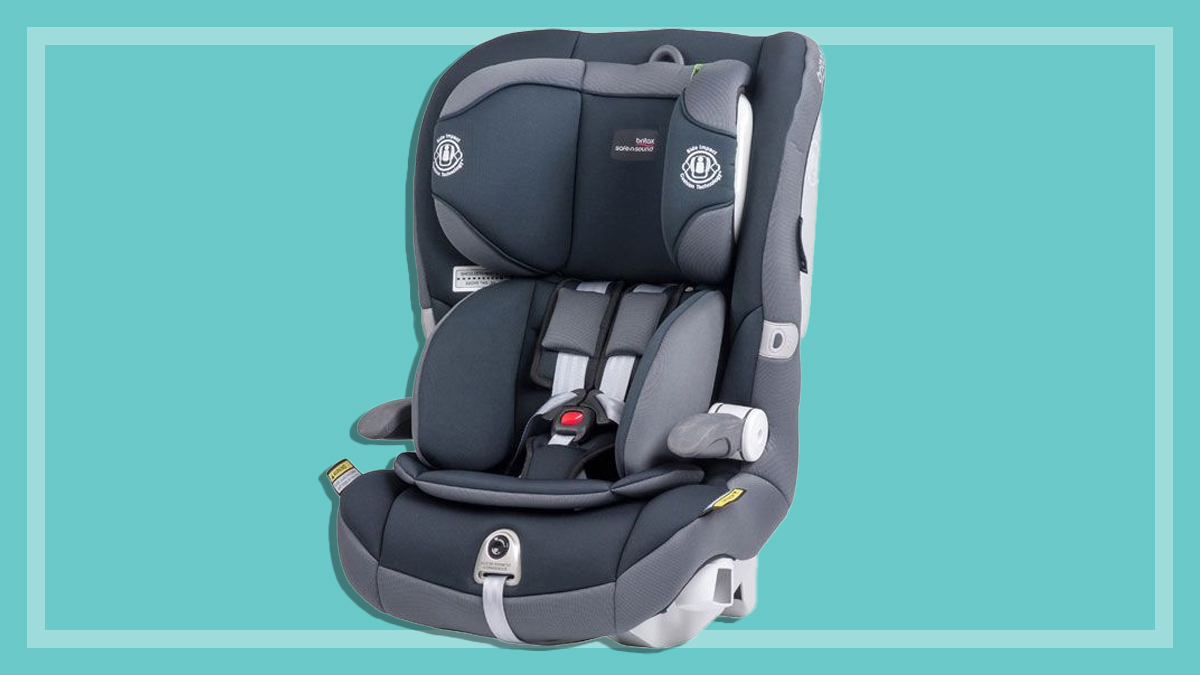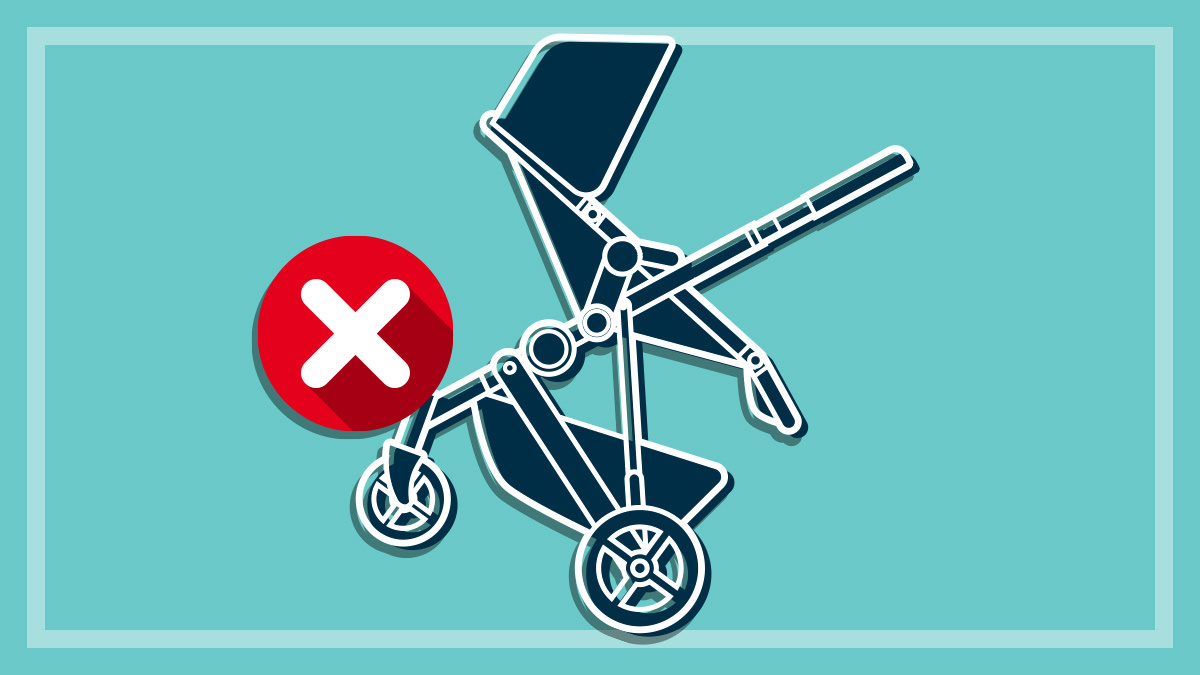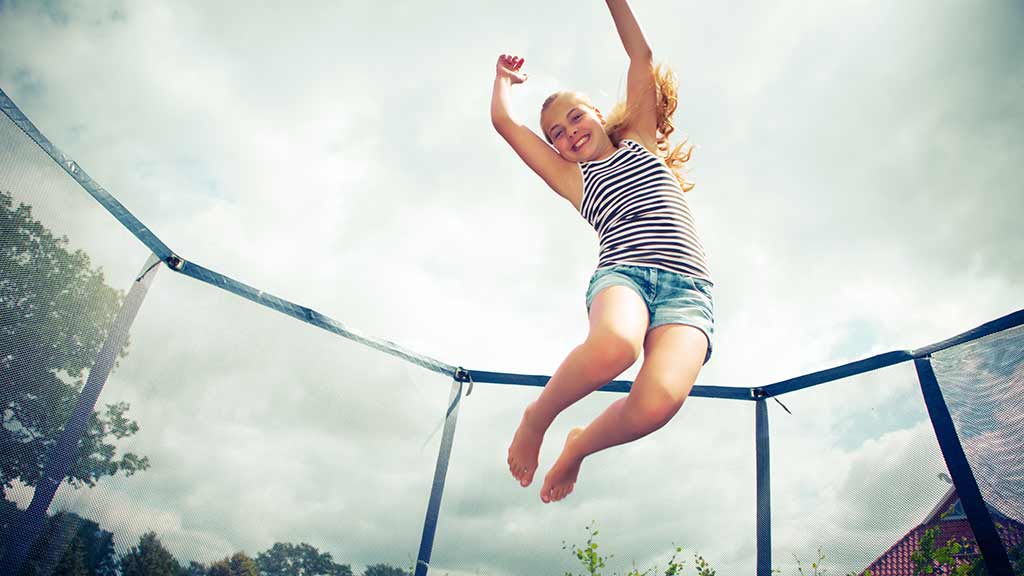Get our independent lab tests, expert reviews and honest advice.
How to pack a healthy kids’ lunch box
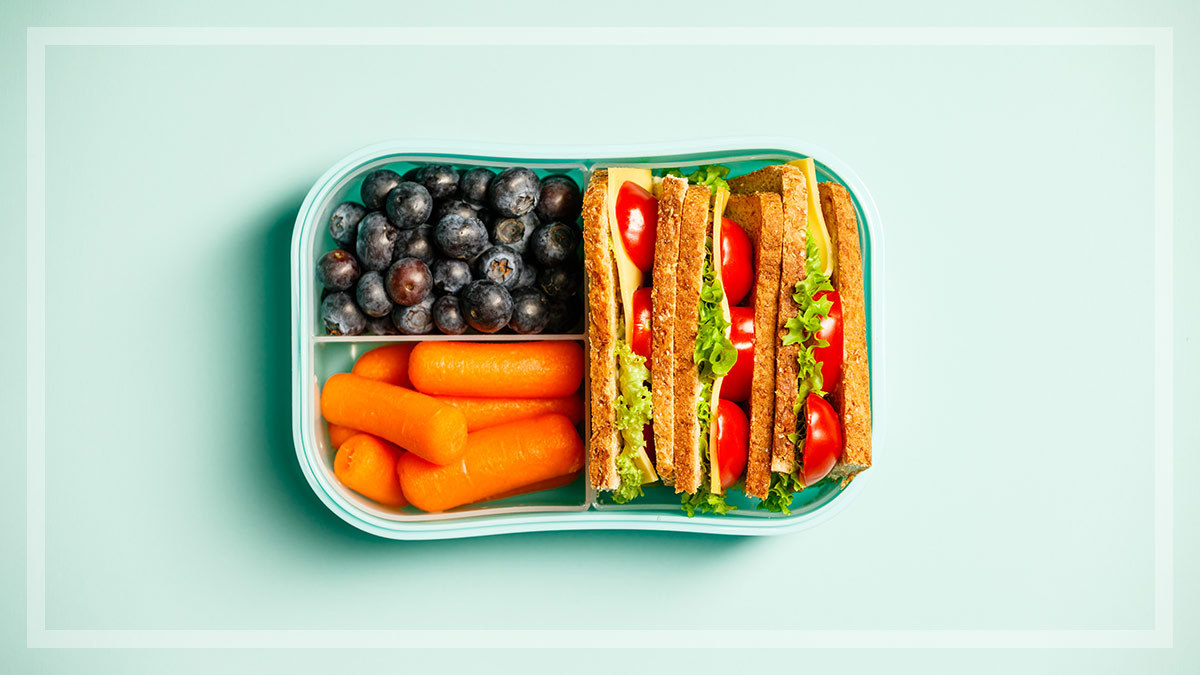
Eating healthy food helps children concentrate and learn, so it’s really important for your child to have a healthy lunch box at school.
The best lunch is one that’s nutritious, quick to make, and fun and easy to eat. Encouraging your children to be involved in choosing foods and preparing their lunch increases the odds it will all be eaten – and enjoyed!
Build a good lunch for your kids with the following healthy lunchbox ideas.
How to pack a healthy kids’ lunch box
A carbohydrate-based food such as bread, pasta, rice, potatoes or couscous is a good starting point to fill hungry tummies.
Yoghurt and cheese are high in protein and a good source of calcium.
High-protein foods such as lean meat, egg, tinned tuna, tofu and baked beans are good fillings for sandwiches, or for adding to pasta or rice salad.
Pack easy-to-eat fruit and veg such as fruit salad, peeled oranges or mandarins, seedless grapes, cherry tomatoes or snow peas.
Add pre-packaged snacks occasionally (not all are healthy enough to include regularly).
Water is best for keeping kids hydrated, although milk is good too. Drinks with added sugar (cordial, ‘fruit drinks’ and fizzy drinks) are best avoided.
Starchy food
A starchy, carbohydrate-based food such as bread, pasta, rice, potatoes or couscous is a good starting point to fill hungry tummies.
Sandwiches are often the lunch box staple, but can get boring day after day. Keep kids interested by using a variety of breads, including wholemeal, white, rye, rolls, wraps, pita, bagels, focaccia and rice cakes.
Protein-rich food
Lean meat, tinned tuna, egg, tofu and baked beans are good high-protein foods for filling sandwiches, or for adding to food such as pasta or rice salad. Importantly, most contain iron as well.
Check if your school has a nut-free policy
Nuts and peanut butter are also good protein sources, but check first if your school has a nut-free policy to protect children with severe allergies.
Protein-rich dairy foods such as yoghurt and cheese are also good sources of calcium, which is essential for growing bodies – especially for strong bones.
Fruit and vegies
For plenty of vitamins, minerals and dietary fibre, try to include at least a serve each of fruit and veg in every lunchbox.
Kids might find vegetables more interesting served as sticks with dip, mixed together with pasta, or as topping for a mini pizza.
Pack fruit and veg that are manageable and easy to eat: fruit salad, mandarins or peeled oranges, seedless grapes, cherry tomatoes or snow peas, for example.
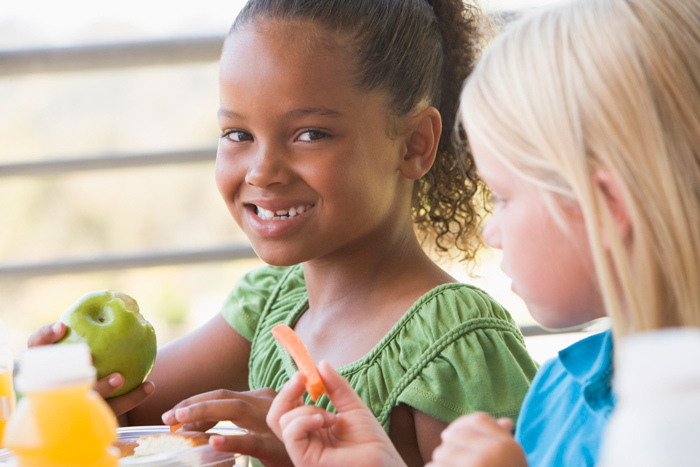
Snacks
Pre-packaged snacks for kids’ lunchboxes can be convenient, but not all are healthy enough to include regularly.
Our reviews of these snack foods have consistently found that very few meet our four nutritional criteria of acceptable energy, saturated fat, sugar and sodium levels.
For advice on how to choose a pre-packaged snack that’s healthy and convenient, read our guide to buying the best kids’ snack.
Drinks
Don’t forget a drink! Active bodies need plenty of fluid to keep them well hydrated, and water is the best choice, although milk – either cow’s or soy with added calcium – is good too.
Drinks can linger in kids’ mouths, so sugary ones may increase the risk of tooth decay. Remember, 100% fruit juice can be diluted. Drinks with added sugar that don’t provide the same nutritional goodies as fruit juice – sweetened juice, “fruit drinks”, cordial and fizzy drinks, for example – are best left out altogether.
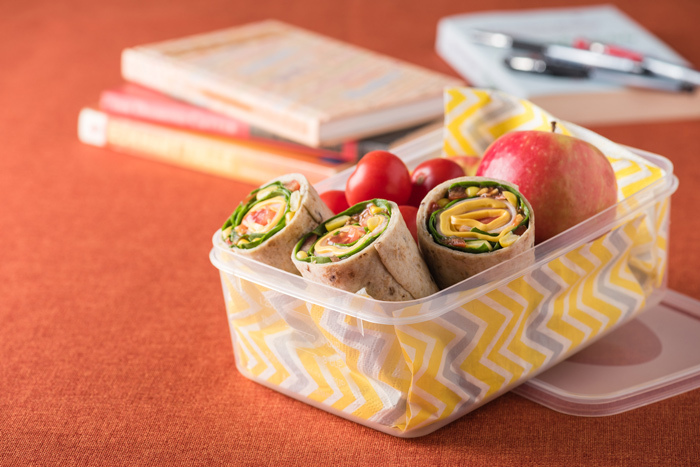
Lunchbox safety
Food-poisoning bugs can grow quickly in foods such as cooked meats, fish, chicken and salads, particularly in warm weather. And because lunchboxes may sit around for several hours before the food is eaten, there’s plenty of opportunity for this to happen.
Follow these suggestions to help keep food safe:
Hygiene
Make sure your hands, chopping board and utensils are clean and dry before preparing food.
Keep the food cold
Use an insulated lunchbox and/or put a freezer pack in with the food to keep it cool. Alternatively, include a frozen drink bottle in the lunchbox – it should defrost by lunchtime. If the school has a refrigerator available, make sure your child uses it.
Preparation
Save time and keep food cool by freezing sandwiches the night before (or even prepare and freeze sandwiches for a week in advance).
Foods suitable for freezing include bread, cooked meat, cheese, peanut butter, baked beans, mashed eggs and Vegemite. Yoghurt and fruit, including grapes and banana or citrus segments, can be frozen too.


